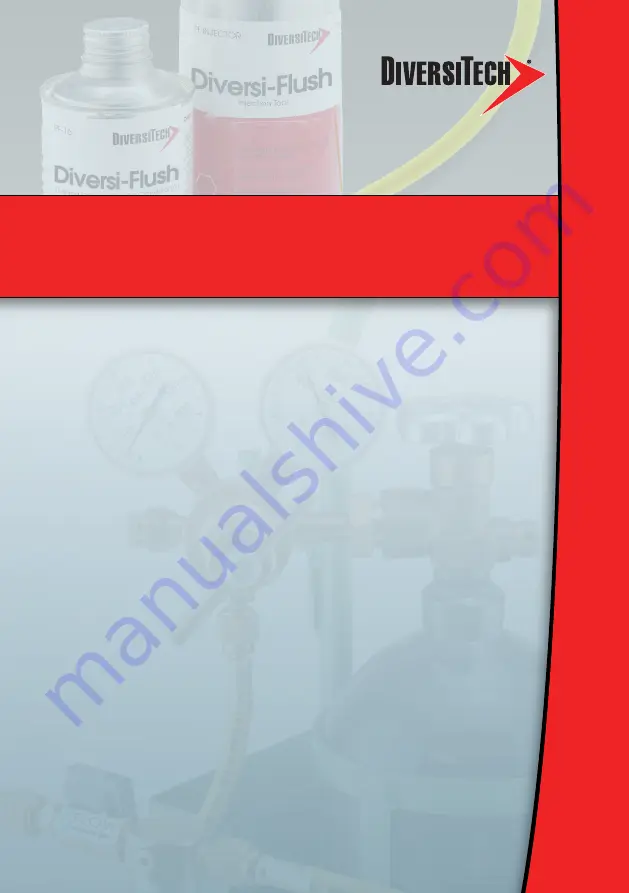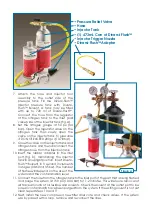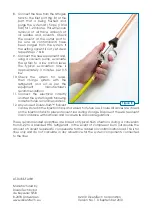
DiversiTech bvba
de Keyserlei 5/58 | B-2018 Antwerpen | O +32 3 205 9312 | F +32 3 226 4482 | www.diversitech.eu
Diversi-Flush
TM
Usage Instructions
The Diversi-Flush™ Kit consists of a reusable injection tank (with built-in 200 psi
(13.78 bar) Pressure relief valve), nitrogen charging hose, and injection tool
assembly. The trigger injector on the tool assembly ensures more efficient use of
the solvent by allowing infinite control of the flushes rather than the less efficient
method of flushing in one long burst. The Diversi-Flush™ Solvent is a dual purpose
blend designed to clean line sets and systems in preparation of changing from
R-22 to a blended HFC refrigerant (mineral oil to POE oil) as well as to flush the
contaminants from a system after a compressor burn out. Typically, due to the
high acidic level of contamination in a burn out, more solvent will be required
in system flushes than in line set flushes. The Diversi-Flush™ Solvent is non-ozone
depleting and has low-toxicity.
Detailed Instructions
Compressor Burnouts
I. Equipment required
1. Diversi-Flush™ Kit including one 473 ml can of Diversi-Flush™ Solvent for every
17.5 Kw to 28 Kw of system capacity.
2. Re-sealable container to hold the contaminated flush material.
3. Nitrogen tank with regulator.
4. Refrigerant recovery machine.
5. Vacuum pump with accessories.
6. Absorbent shop cloths, rubber gloves and safety goggles.
II. Detailed Instructions
1. Evacuate the system using approved techniques and recovery equipment.
2. Take the electrical system offline
3. Remove the old compressor from the system
4. Remove filter drier cores as well as any check valves and reversing valves on
heat pump systems. It may be quicker and less expensive to by-pass the filter
drier, check and reversing valves with a by-pass loop.
5. Make sure a re-sealable waste container is attached to a discharge port to
capture the flushed acidic contaminants.
6. To maximize solvent contact time, restrict the flow at the discharge port. This
will minimize the amount of solvent needed to thoroughly clean the system.






















